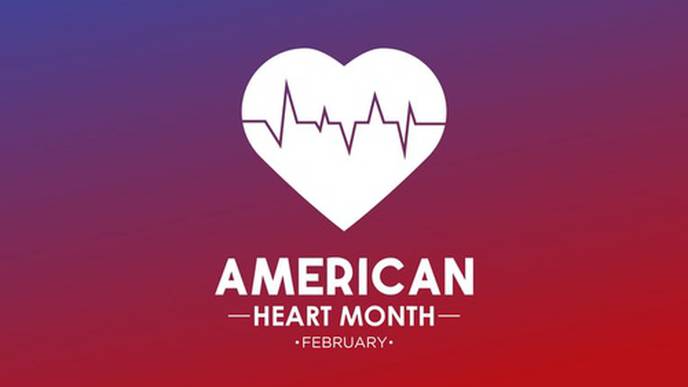ReachMD
Be part of the knowledge.™American Heart Month Puts Spotlight on Cardiovascular Disease and Stroke Statistics

February 1, 2024 — As cardiologists, heart disease patients and the organizations that serve them across the country embark on American Heart Month, DAIC has compiled a snapshot of significant cardiovascular disease (CVD) and stroke statistics, along with a review of the atherosclerosis drug market.
Each year, the American Heart Association (AHA) gathers a Statistical Update, described as a major source for monitoring cardiovascular health, risk factors and disease in the United States and global population, and published annually in the AHA flagship journal Circulation. In addition, market research firms, like FACTMR referenced here, focused on the cardiology industry and regularly issue insightful reviews and forecasts worthy of note, portions of each shared here. The article also includes links to DAIC channels (on peripheral artery disease, stroke, heart failure, peripheral artery disease, cardiovascular clinical studies, and more) focused on specific areas of news coverage.
Cardiovascular Disease and Risks by the Numbers
- On average, someone dies of CVD every 34 seconds, equating to 2,544 U.S. deaths each day.*
- On average, someone dies of a stroke every 3 minutes and 17 seconds, equating to 439 deaths daily.*
- 25.5 percent of adults have high LDL-C (>/_ 130 mg/dL).**
- The age-adjusted death rate attributable to CVD is 224.4 per 1,000*
- 122.4 million, or 47% of adults are estimated to have hypertension.**
According to the American Diabetes Association, cardiovascular disease (CVD), where the heart and blood vessels are negatively impacted, is the number one cause of death in people living with diabetes, resulting in 2/3 of deaths in people with type 2 diabetes.
- People with diabetes are twice as likely to have heart disease or a stroke than people without diabetes.
- 1 in 3 adults with Type 2 diabetes may have undetected cardiovascular disease. Elevated levels of two protein biomarkers that indicate heart damage were associated with undetected or symptomless cardiovascular disease in adults with Type 2 diabetes compared to those without Type 2 diabetes, according to new research published May 31, 2023, in the Journal of the American Heart Association, JAHA.
In addition, 115.9 million adults have prediabetes; 29.3 million have diagnosed diabetes; and 9.7 million have undiagnosed diabetes.** According to the AHA, people who have Type 1 diabetes are nearly 10 times more likely to develop cardiovascular disease than those who do not have it. Different types of cardiovascular disease include atherosclerosis, heart failure and arrhythmias.
Atherosclerosis Drugs Market Analysis
In “Atherosclerosis Drugs Market Trend Analysis 2023 to 2033,” a market summary and forecasting report issued November 2023, FactMR reported several key findings.
According to the company, a provider of market research and competitive intelligence, the global atherosclerosis drugs market is expected to reach a value of $62.8 Billion by the end of 2033, and estimated a 2.3 percent Compound Annual Growth Rate (CAGR). According to the FactMR report authors, “The increasing prevalence of cardiovascular diseases, advancements in drug development, and rising awareness about atherosclerosis prevention and treatment are the key factors driving the market growth.”
In noting what the statistics show, and cardiology community sees daily, the FactMR report adds that the U.S. represents the largest portion of the global market, as unhealthy lifestyles will continue to fuel the demand for effective pharmaceutical interventions.
Addressing strategies for companies in this industry, the market analysts offer two keys to driving future growth, writing: “Focusing on the development of innovative lipid-lowering drugs is an effective strategy for success in the Atherosclerosis Drugs Market. The FactMR report authors noted PCSK9 inhibitors represent a newer class of drugs that target a protein involved in cholesterol regulation. Moreover, leading companies in the business should focus on creating advanced drug delivery systems such as injectables or implantable devices. These innovations can make it easier and more convenient for patients to manage atherosclerosis,” according to FactMR’s November 2023 market report.
Lastly, the authors offer, “Future atherosclerosis medication sales in the US may benefit from supportive programs to advance medical research as well as the introduction of advantageous insurance and reimbursement regulations. Future prospects for the nation's producers of atherosclerosis medications are expected to be enhanced by rising public knowledge of the condition and the advent of innovative therapies.”
*based on 2020 data used to compile AHA’s 2023 Statistical Update. **based on 2017-2020 data used to compile AHA’s Statistical Update.
More information: www.heart.org, www.diabetes.org, www.factmr.com
Related content:
NEW STUDY REVEALS LATEST DATA ON GLOBAL BURDEN OF CARDIOVASCULAR DISEASE
Facebook Comments